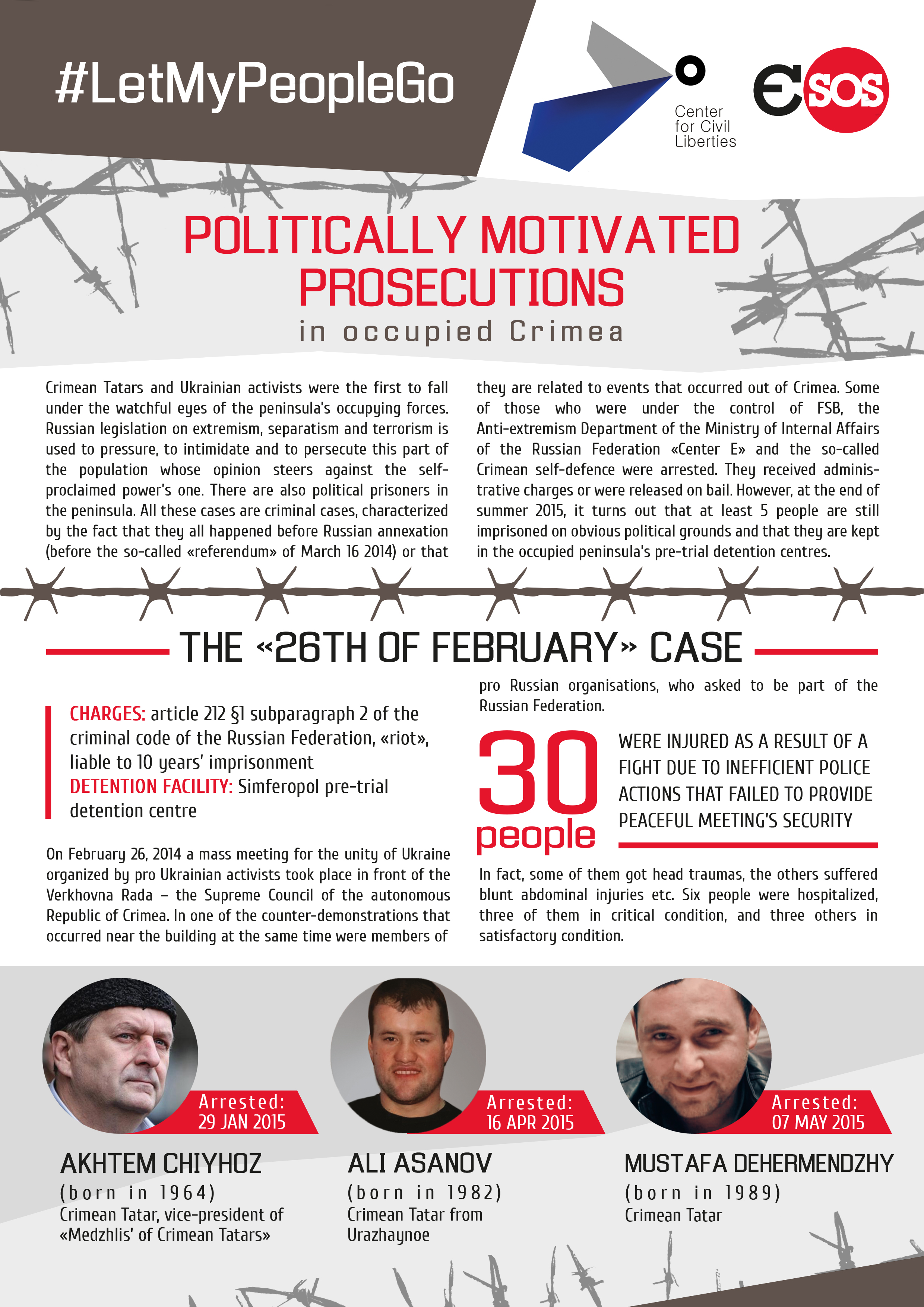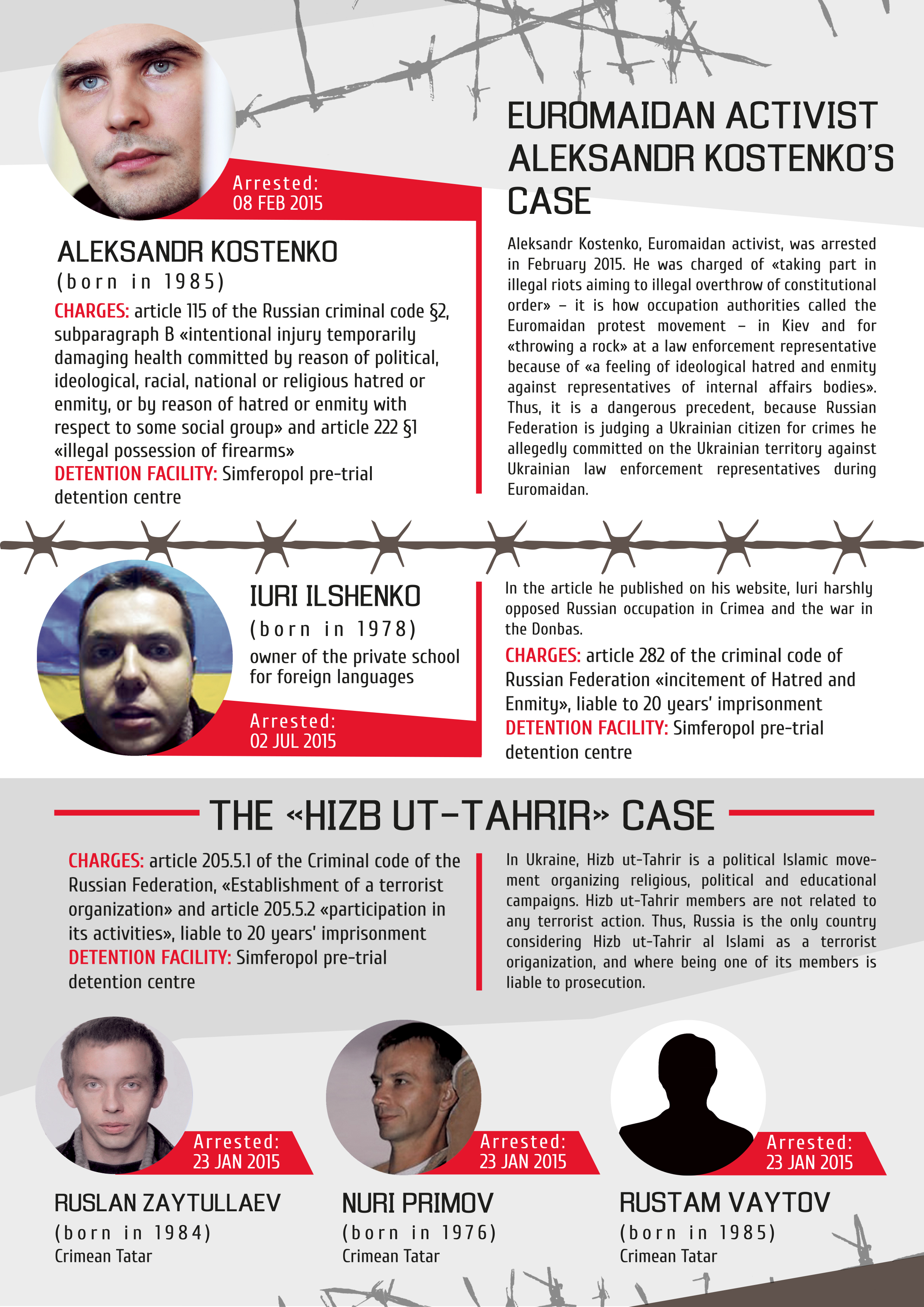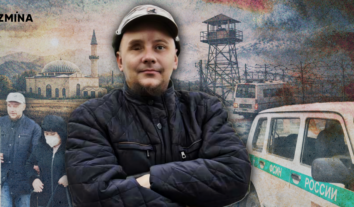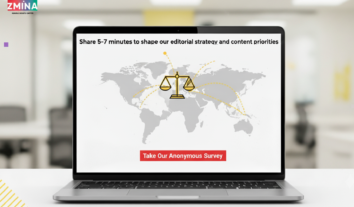Crimean victims of politically motivated persecutions
The human rights activists of the Euromaidan SOS volunteer initiative state that at least five people have been imprisoned for political reasons in the occupied Crimea.
They are defendants in the case of February 16 – Ahtem Chiygoz, Ali Asanov, Mustafa Degermendzhy, Euromaidan activist Oleksandr Kostenko, owner of a private foreign language school Yuri Ilchenko, as well as representatives of the Hizb ut-Tahrir movement.


“There are a number of organizations in Russia that is recognized as neither dangerous, nor terrorist by the world community. Unfortunately, the Hizb ut-Tahrir movement is considered to be the terrorist organization in Russia and involvement in it is criminally prosecuted. Now there are three imprisoned members of the organization, who did not have time to leave Crimea, where the Russian authorities had occupied it. They are accused of plotting and organization of terrorist acts. There are no grounds for these charges,” Oleksandra Romantsova, project coordinator of the Center for Civil Liberties, says.
In summer, the occupation authorities arrested blogger Yuri Ilchenko, who posted the article, criticizing the situation in Crimea and the Russian authorities, on his website. The Investigative Committee of the Russian Federation accuses him of extremism and incitement of hatred or enmity.
The human rights activists say that persecutions in the Russian Federation (except for the North Caucasus region) usually do not have the all-out nature and are used selectively against specific persons. At the same time, the occupation authorities in Crimea use all tools, available in the Russian legislation and practice, suppressing any alternative point of view to completely mop up the independent civil society.
The occupation authorities in Crimea use both legal mechanisms (searches, seizures, arrests, trumped-up cases) and extralegal methods (threats, beating, abductions, torture, murder) to persecute the people.
Crimea battalion commander Stanislav Krasnov earlier told about such persecutions.
In July – August 2015, at least 17 interrogations and three searches were conducted, eight people were arrested for political reasons, 18 trials were held, three criminal cases were opened, and one refusal to hold peaceful assembly was issued in Crimea.














